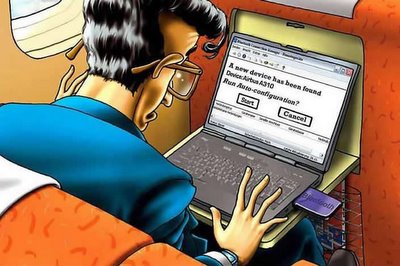The IrelandOn-Line wirtes:
Next year will be arriving late – thanks to a slowing down of the Earth’s rotation.
To compensate for the effect, a “leap second” is to be added to the end of December 31.
It means the traditional New Year’s Eve countdown will now end at 00.00.01.
The decision was taken by the International Earth Rotation and Reference Systems Service, based at the Paris Observatory.
Leap seconds were first introduced in 1972, but this is the first to be applied for seven years.
Normal clocks are based on Greenwich Mean Time (GMT), the world standard since 1884, which is tied to Sun’s position in relation to the Greenwich Meridian - the zero line of longitude.
The resulting “Universal Time” depends on the rotation of the Earth on its axis.
But the speed at which the Earth spins is continually changing, partly due to varying weather patterns and geological disturbances, but mostly because of the friction of tides.
This results in a small but continuous slowing down, so that the day is now about two milliseconds longer than it was 200 years ago.
Leap seconds were introduced to keep “clock time” and “Sun time” in step.
The International Telecommunications Union has recently proposed abolishing leap seconds to avoid the problem of updating communication and navigation systems.
But scientists oppose the move. A spokesman for the Royal Astronomical Society said: “Quite apart from professional scientists, such as astronomers, who might be adversely affected by such a change, over hundreds of years the civil time would not longer coincide, even approximately, with the ‘Sun time’ traditionally shown on a sundial.
“Even over a few decades, when the error might grow to up to a half minute or so, one can imagine the arguments that lawyers and insurance companies might have about whether an event had occurred just before or just after midnight.
“And in today’s modern electronic era differences of seconds between different people’s interpretation of the correct time might sometimes lead to a dispute.”
The Royal Astronomical Society has recommended that any decision to change the way time is recorded should not be left to a single professional body but follow a public debate.
12.28.2005
Subscribe to:
Comments (Atom)

